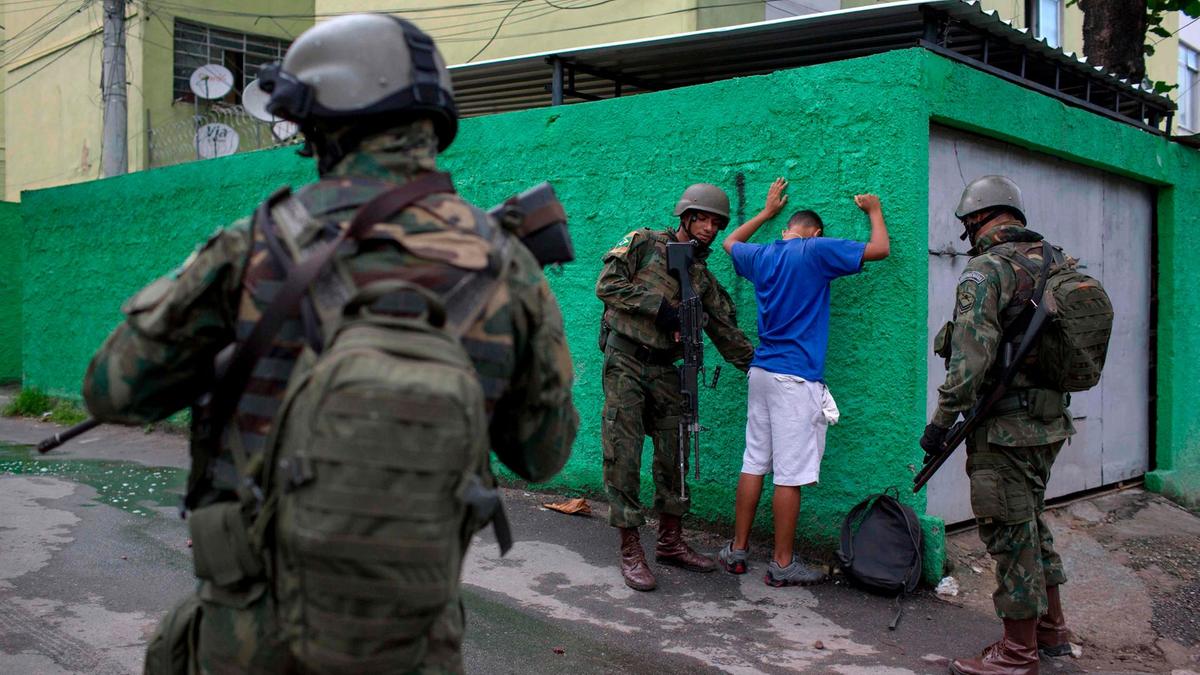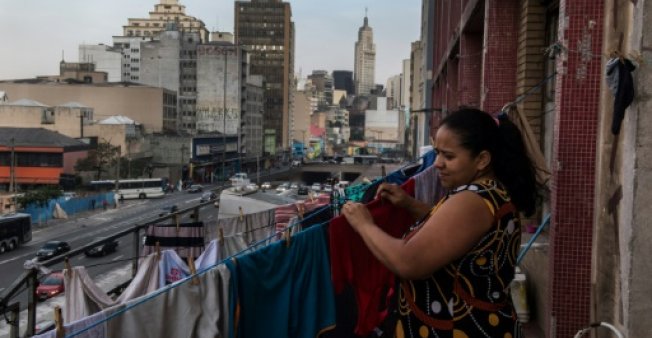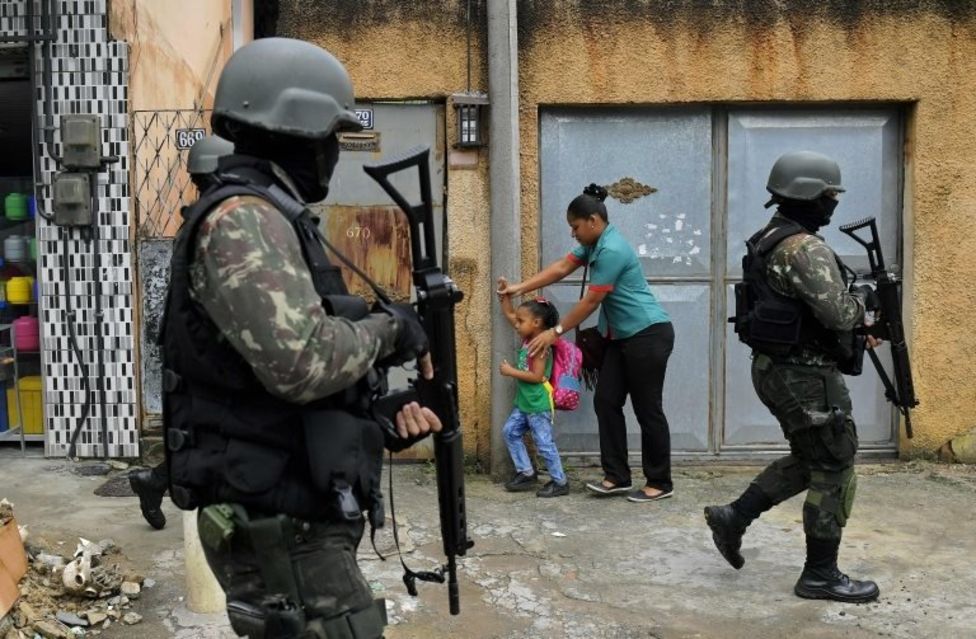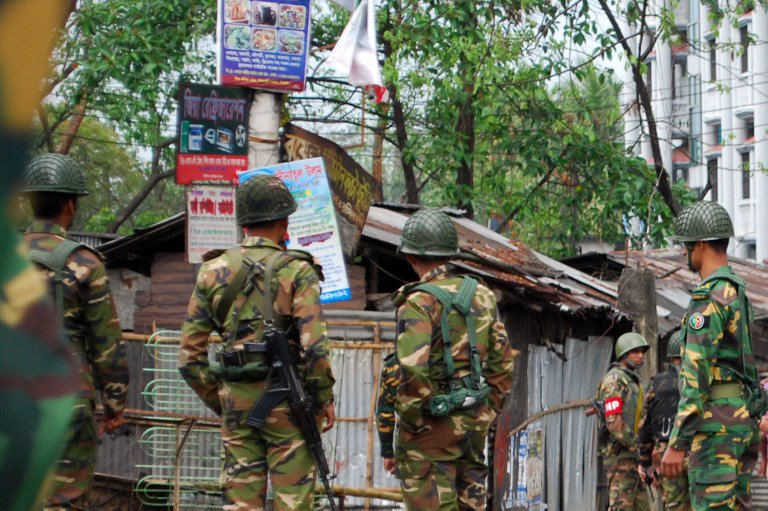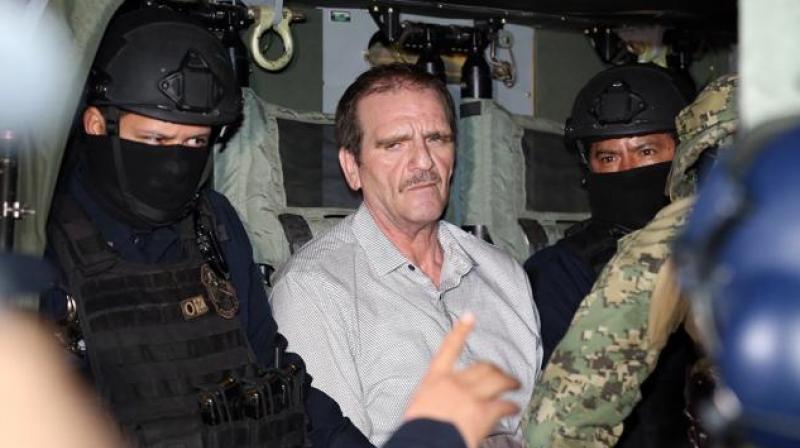Seemingly, escalating violence and drug-related crimes in Rio de Janeiro have forced President Michel Temer to activate military intervention. In February, he signed the decree that allowed the military to take over security until the end of the year. It is the first time since the end of Brazil’s military dictatorship in 1988 that such a measure is triggered.
Organizations like Human Rights Watch and the United Nations have expressed their concerns over the intervention’s rules of engagement, particularly the one allowing the army to use lethal force in life-threatening circumstances and when facilities and goods are attacked. This is a “license to kill,” according to the organizations, which goes against international law principles while granting the armed forces a free pass to shoot and kill.
Given the population density of Rio’s slums, any military action puts citizens in great danger. Stray bullets are already commonly hitting residents, including children at homes, schools, and open spaces.
Two-and-a-half weeks ago, a four-day operation in the Alemao, Penha, and Maré slums in north Rio resulted in the death of five suspects and three members of the military. The action involved 4,200 soldiers and 70 civil police officers. A number of 86 suspects were arrested, 1.5 ton of drugs was apprehended, 27 accounting notebooks were seized as well as 53 weapons, 4,700 bullets, and 13 bulletproof vests.
The extreme military measures make it difficult for media to verify the official accounts. While government channels are praising the intervention as successful, residents describe on social media the horrors of abuses they experience. Accusations against the army include the abuse of power in the form of arbitrary arrests, late night house searches, and destruction of private property.
On the community Facebook page Maré Vive residents have called for action against such violations, claiming that the military intervention has led to further “criminalization of the slums.” The “greater good” concept of improving security in the state cannot justify the killing of innocent citizens under the title of “collateral damage” that the government often uses.
With presidential elections around the corner and the public rating of the incumbent president at a record low, Temer might be using such extreme measures as part of an election theatrical to attract support for his party. If the operation turns out to be a success, Temer and his party might use it as a campaign tool.
Rio’s Drug War: Beyond Drugs and Favelas
A government document that was leaked to the media in 2017 listed 843 areas of the state Rio de Janeiro that are under the control of criminal organizations. In these areas, gangs have their own rules and “justice system.” In case of rape, theft, and changed allegiance, offenders are punished barbarically, varying from lynching to cutting off hands and execution. For example, when a woman is accused of adultery, she is publicly beaten after which her head is shaved.
The gangs that rule the slums provide the people with “public services” like security, internet, and emergency health allowance. The imprisoned Fernandinho Beira-Mar is believed to be leading one of the main gangs controlling the slums. It is estimated that he makes around 1 million Brazilian Real ($250,000) per month as a profit of such services.
Beira-Mar’s gang group, Comando Vermelho (Red Command), is active in Rio de Janeiro, other parts of Brazil, and neighboring countries. The gang was founded in prison in the 1970s under the banner of “Peace, Justice, and Liberty” to defy the then military junta oppression but later transitioned into a criminal network.
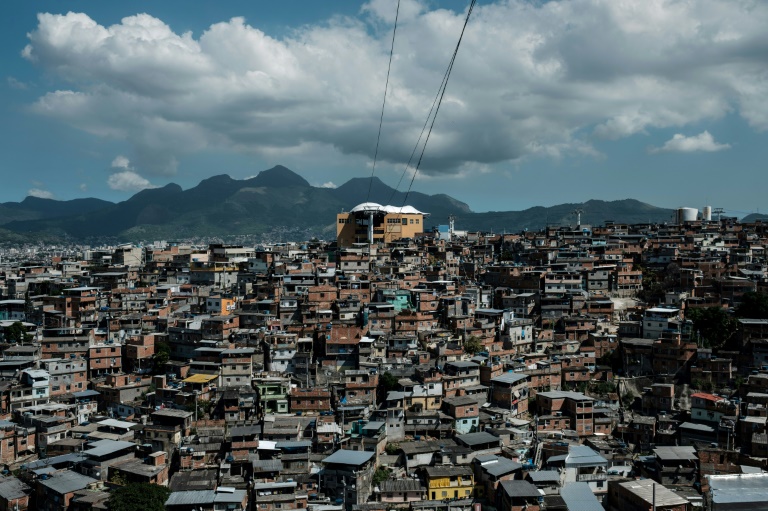
Sadly, youths are recruited as gang soldiers, particularly those who suffer from poverty, lack of education, and lack of employment opportunities in the slums. By becoming part of a gang, they receive “social status” and financial means.
Additionally, some corrupt elements within security institutions that put the slums under surveillance act as militias to profit from these poor squatter settlers. In some instances, they emerge far worse than the gangs, causing further harm to the slum communities.
A portion of Brazilian citizens, who did not choose to live in the slums, is suffering from various human rights violation, besides poverty and segregation. Either drug lords or corrupt officials rule them barbarically as if they are living in a country within a country under fascist authority.
Wicked Problem Requires Holistic Solution
Marcio Nepomuceno, also known as Marcinho VP, is believed to be one of the leaders of the Red Command gang, an allegation he denies. In an interview from prison, he argued that “traffic of narcotics does not end because it sponsors political campaigns.” Drug trafficking is a highly profitable business, and one form of laundering this money is by financing political campaigns. This issue has been investigated between 1999 and 2003, and even led to the arrest of the congressman Hildebrando Pascoal, but ended without any concrete conclusion, mostly due to political unwillingness.
When Marchino VP was inquired about a solution for the drug-related crime in Rio, he defended the idea of legalizing drugs, particularly marijuana. While he is wrong on serious accounts that landed him in prison, he is right on the legalization of marijuana. This is a potential solution to take away drug dealers’ source of income. Additionally, the government would benefit as legalization would increase tax revenues and reduce drug-related crime.
However, before legalization, a nationwide civil society movement is required to raise public awareness on the issue, similar to what happened in Uruguay. There is a Brazilian movement that is undermined on the basis of prejudices. This group could transform themselves as leading advocates for raising public awareness of drug-related crimes as a result of the criminalization of drugs policies.
Kleptocracy and demagogy are great barriers to overcome. Politicians and the big drug lords are powerful enough to stop any deal from happening, and the so-called “Christian bench” of both Congress and Senate along with religious leaders would oppose to any movement towards a new policy. Even a criminal like Marcinho VP seems to understand the harmfulness of corruption: “Drug-trafficking is harmful and fatal, but corruption is the crime that kills the most in Brazil,” he said during the aforementioned interview.
Perhaps, military intervention is needed more in fighting corruption than drugs in poor neighborhoods. Only a corruption-free Brazil will find solutions for some of its pressing problems.
Disclaimer: The views and opinions expressed here are those of the author and do not necessarily reflect the editorial position of The Globe Post.

